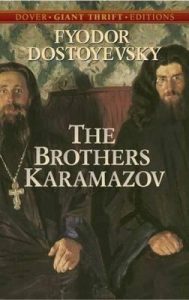 Title: The Gap of Time (Goodreads)
Title: The Gap of Time (Goodreads)
Author: Jeanette Winterson
Series: Hogarth Shakespeare
Published: Hogarth, 2015
Pages: 320
Genres: Contemporary
My Copy: Library Book
Buy: Amazon, Book Depository, Kindle (or visit your local Indie bookstore)
I have not read many of Shakespeare’s plays. I remember in high school I did do Romeo and Juliet and all I remember is watching the movie. Since starting my reading journey, I have now read Macbeth and Antony and Cleopatra. Hogarth have announced that they will be releasing modern retellings (they are calling them cover versions) of Shakespeare plays in celebration of the 400th anniversary of his passing. This will be including books by Howard Jacobson, Anne Tyler, Margaret Atwood and Jeanette Winterson. The first novel in this series is Jeanette Winterson’s interpretation of The Winter’s Tale called The Gap of Time.
I had to read The Gap of Time for book club and I will admit I was nervous, having never read the original play, but was happy to finally check out something by Jeanette Winterson. I am not sure if not reading The Winter’s Tale, put me at a disadvantage but I approached this book as a new story, not knowing what parts are influenced directly from the original text. I noticed many themes of identity, jealousy, forgiveness, parenting, power, race and sexuality but unsure if this was the work of Winterson. I know Jeanette Winterson often explores sexual identity in her novels but that does not mean William Shakespeare did not have an interest in the topic.
I read this book more like a coming of age story, exploring the idea of family in a modern day setting. There are elements of romance but for the most part it was a story of discovery and identity. It was playful (with quotes from Shakespeare in the text) and at times tragic. I think this is a balance that Shakespeare does really well in the plays I have read and Jeanette Winterson seemed to capture this really well in The Gap of Time.
I found this to be an enjoyable novel even if I could not compare it to the original text. I am impressed with Jeanette Winterson but I would be more interested in checking out what she can do without being constrained to a pre-set plot. Oranges Are Not the Only Fruit and Sexing the Cherry are both books I would love to read in the near future. As for the Hogarth cover versions, I am not sure how many I will read. There are some great authors being selected but I think reading the original text beforehand would be a huge advantage. Only problem is, I have a huge reading list already and not sure when I will get a chance to read more Shakespeare.

 Title: The Tsar of Love and Techno (
Title: The Tsar of Love and Techno ( Title: The Brothers Karamazov (
Title: The Brothers Karamazov ( Title: Submission (
Title: Submission ( Title: Hide and Seek (
Title: Hide and Seek ( Title: Hausfrau (
Title: Hausfrau ( Title: Voices from Chernobyl (
Title: Voices from Chernobyl ( Title: The Librarian (
Title: The Librarian ( Title: A Meal in Winter (
Title: A Meal in Winter ( Title: The Whites (
Title: The Whites (